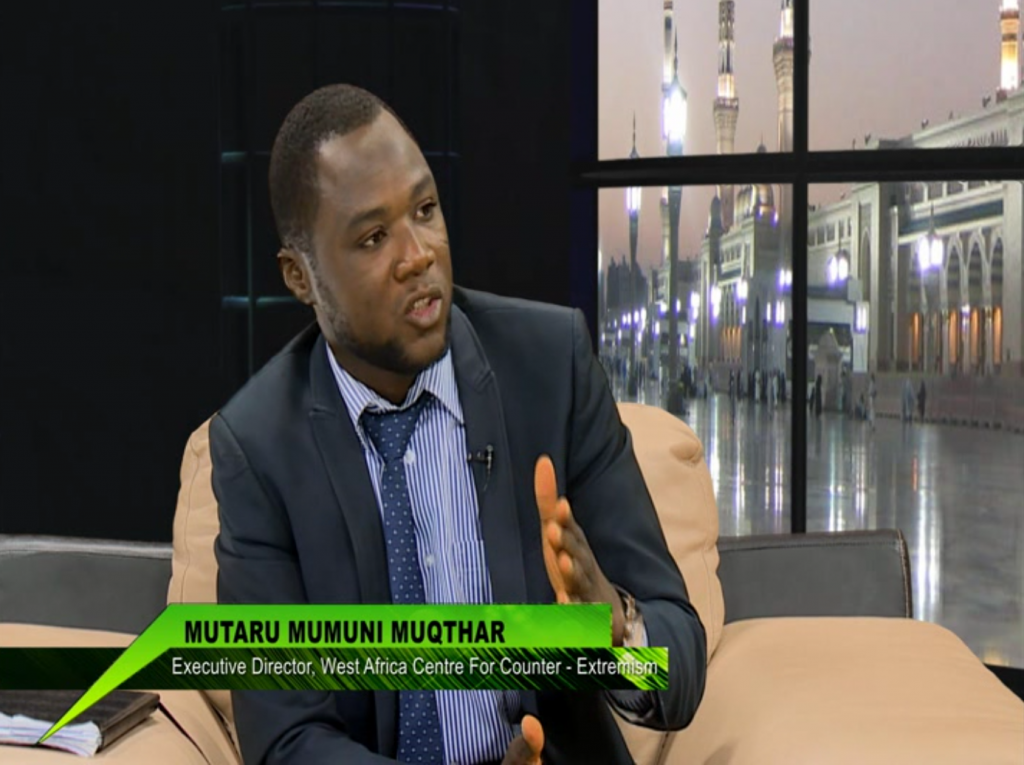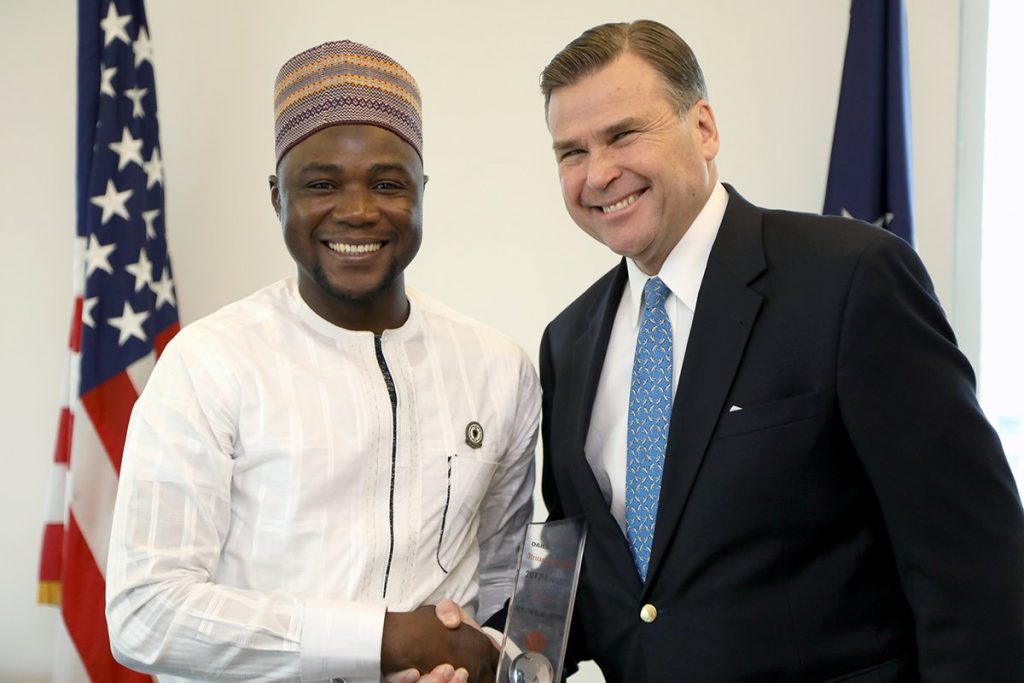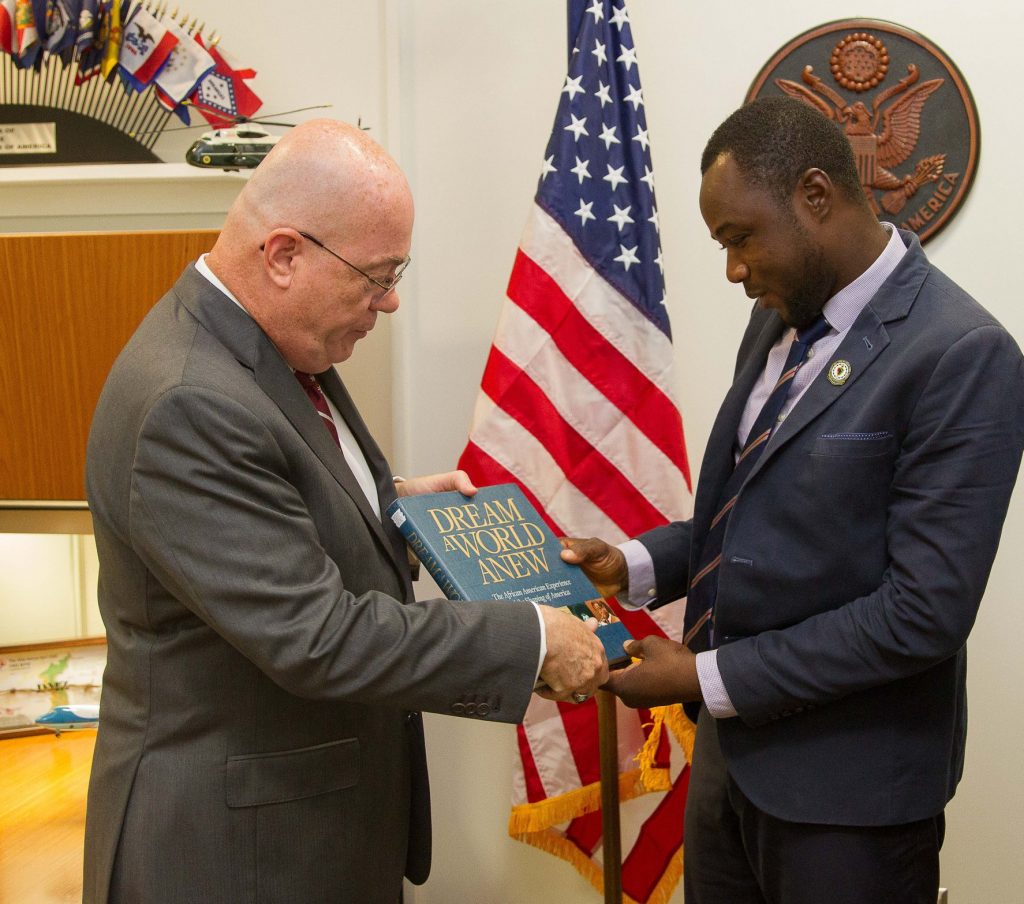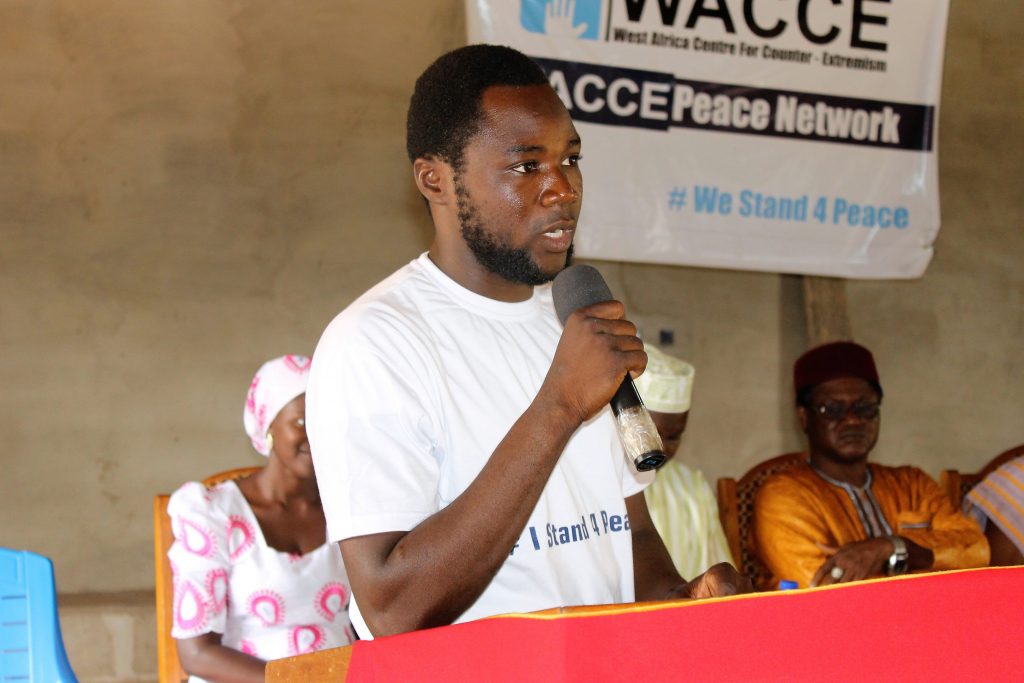OTPG: Can you give some background information about you? Where in Ghana were you born? Schools attended, professional work experience, etc.
Muqthar: I was born in a small village of Kidenge near Salaga, Northern Ghana, in 1982 to my farming parents. I come from a polygamous family of 16 other siblings. I am the first and the only one from the family to have had university education. At about 9 years I was sent to Tamale to enroll at Presbyterian Primary School (Kulikuli School) in Tamale. I proceeded to Dakpema Junior Secondary School in 1996 and then proceeded to Ghana Senior High School (Ghanasco) in 2000, both in Tamale.

My family evacuated to Tamale at the onslaught of the Nanumba-Konkomba war in 1994. My uncle and other external family members died in the conflict. The family was scattered in many parts of East Gonja district and other parts of Ghana. Some remained in Salaga, others moved to Tamale whilst others settled in other villages not affected by the conflict. This was a very difficult time for the family. Without income, we depended on external family support in Tamale and food aid from USAID. All my siblings were withdrawn from school. It was difficult to study, and I struggled through school. Government and NGO work on peace and development was widespread. It was pervasive on the radio, local community programs, etc. These experiences collectively inspired my interest in working in peace and security as a legitimate career.
I won a scholarship to Ashesi University and graduated with a BSc in Business Administration in 2007. I was offered a job at a research and foreign business assistance services company, RDFC Africa Limited, where I had an amazing working experience for 3 and half years. I worked and trained in Ghana, Egypt, Nigeria and the United Kingdom. In 2011, at a time North Eastern Nigeria and Libya were both increasingly disintegrating into anarchy and South Sudan was on the throes of genocide, I left RDFC Africa Limited as Business and Research Manager to study for a Masters degree in International Terrorism, Global Crime and International Security at Coventry University, UK. This included understudying anti-mafia prosecutors in Sicily, Italy. Following a six-month internship with the West Midlands Police Department, Coventry, I returned to Ghana in 2014 to help contribute to countering the increasing menace of terrorism in West Africa. This is when the West Africa Centre for Counter Extremism (WACCE) was born.
OTPG: How did you birth the idea of the West Africa Centre for Counter-Extremism (WACCE)? What goals did you have for founding the organization?
Muqthar: WACCE was founded in 2014 in response to the growing number of young Ghanaians and West Africans succumbing to the allure of terrorist ideals.
During this period, West Africa became the epicenter for radicalization and violent extremism, recording the largest increase in terrorist activities with Boko Haram surpassing ISIS in fatalities in 2014. With more than 7,215 deaths in 2014 alone, West Africa emerged as the deadliest in the world for terrorism fatality in 2014. Apart from the enduring terrorist campaign in Northern Nigeria, Cameroon and Mali, the recent terror attacks in Cote d’Ivoire and Burkina Faso demonstrates that Ghana is not in any way insulated from the threat of attacks. My goal was therefore to help dissuade the increasing generation of vulnerable youth from violent extremism and radicalization and inspire them to realise their full potential whilst positively contributing to the transformation of the continent. I will like to position WACCE as a leading institution for security and counter terrorism in Africa providing policy guidance and strategy for State and Regional counter terrorism efforts.
However my own family experience as victims of the 1994 conflict, seeing the devastation and viciousness of violent conflicts and its impact on society, have been the biggest motivation for my engagement in security and counter-terrorism.
OTPG: Since the organization was founded in 2014, how will you rate your impact?
Muqthar: Since 2014, WACCE has been very instrumental in deepening understanding around issues of violent extremism and radicalization in West Africa. Our counter-radicalization program has been very effective in providing understanding about the threat and how to counter the vulnerabilities for radicalization. In the last 3 years, we have succeeded in dissuading more than 22 vulnerable individuals from engaging in violent extremism or leaving to join terrorist groups. A high profile case was in 2016 when our advocacy work on counter-radicalization helped to prevent a radicalized young man from travelling to Syria to join ISIS in 2016.

We have set up a peace network in educational institutions to engage in peace initiatives and youth empowerment. This is intended to build a new generation of patriotic, responsible and peace loving citizens to deepen the culture of peace, coexistence and stability.
OTPG: Has getting support for the organisation been easy? What challenges/opposition, if any, have you encountered since you started?
Muqthar: First of all, this is a very new area of work and thus comes with many challenges. The Registrar General’s Department twice rejected our registration with the strange excuse that a private organization could not engage in counter terrorism work.
Many people questioned my motive for setting up this organization. Some questioned whether I was working for a foreign agency, others dismissed the reality of radicalization in Ghana. In June 2015, my office was attacked, and its content taken away including one desktop containing valuable information regarding our research on maritime piracy.
Among these challenges, funding is one of the biggest challenges. In the last three years, we have struggled for funding, surviving only on the voluntary contributions from family and friends. Luckily, the US Embassy in Accra provided funding for our peace network in 2016.
OTPG: What areas do you wish for more support or collaboration in?
Muqthar: WACCE needs the support in many areas. We urgently need support in terms of office equipment; computers, printers, projectors, scanners, and funding to sustainably run our activities. I will also like to collaborate with organizations working in peace and security as well as youth and unemployment.
OTPG: You attended the Mandela Washington Fellowship in 2016. What effect has this had on you and your organisation’s work?
Muqthar: My participation in the Mandela Washington Fellowship in 2016 has been very phenomenal experience. It has provided higher visibility for my work, expanded my network of relevant contacts locally and internationally. It continues to be the revolving point for many opportunities. The media coverage has brought more attention to my work and has helped to positively project the organization.
OTPG: In your opinion what’s at the heart of terrorism and other security challenges facing Africa?

Muqthar: Terrorism is an increasingly complex and challenging issue for the global community. This is why it has consumed so much global resources and efforts and yet we still are unable to find sustainable solutions. Unfortunately Africa has in the last decade become as the epicenter for radicalization and violent extremism. The pervasive issues of youth unemployment, astonishing poverty and inequality, corruption, chieftaincy and land related disputes, fierce political campaigns and political violence continue to make Africa a vulnerable environment for radicalization and terrorism and conflicts.
States need to ensure deliberate development programs aimed at reducing poverty and inequality, eliminating corruption and creating employment opportunities for the youth. This is a necessity, and cannot be delayed if Africa is to ensure sustainable peace and stability. The increasing number of desperate unemployed youth constitutes a perilous threat to security. It is no wonder that West Africa emerged as the deadliest region globally for terrorism in 2014 registering in excess of 7,200 casualties, ahead of ISIS. The threat continues to be overwhelming for State counter terrorism strategy. From my experience so far, I believe that sustainable success against terrorism and the violent ideas that underline it cannot be won only on the battlefield, it will be won in the mindset, within the local community. It will require tackling challenges directly related to the livelihoods and aspirations of the teeming and desperate youth of Africa.
OTPG: Congratulations on winning The 2017 African of the Year award by Daily Times Nigeria. Did you know you had been nominated or was in the running for the award?
Muqthar: Thank you very much for the compliment. I had no idea that I had been nominated for this award until I read online about being among the top 3 finalists. I did not expect that I will emerge winner given the huge gap between myself and the two finalists from Egypt and Nigeria who clearly appeared highly qualified than I was. So it was a surprise, and of course a huge excitement that I was announced winner. I was excited and grateful for this honor. For me it serves as a testament and validation of our efforts in working in this area.
OTPG: How did it feel to be rewarded for your work with WACCE?
Muqthar: I felt very excited and grateful for this award. This is partly because this is far more greater than anything I have ever accomplished or even envisaged when I set out to engage in countering violent extremism and radicalization in West Africa. It will forever serve as a huge motivation to continue to do more in dealing with the challenge of violent extremism and radicalisation in West Africa.
OTPG: What does the Africa of your dreams look like? What’s your ideal vision of Africa?
Muqthar: Like many other Africans, I have been trying to help contribute towards a renaissance in Africa. And the challenge of the renaissance of Africa is a challenge of ethical and responsible leadership – leadership not only in our political conception of what leadership connotes, but leadership in dealing with problems at all levels of society. Africa can only truly be transformed through ethical and inspired leadership – from the street sweeper to the local transport, the teacher, the engineer and the operator through to the legislator.

OTPG: I can say you’ve found your life’s purpose with the work you are doing with WACCE, what advice will you give to youths who are just starting out and are yet to figure out their paths?
Muqthar: I believe that life is made up of patterns, and if you search hard enough you’ll find where you fit in. This requires hard work, discipline and patience. Many are not ready to wait or work as hard as required. The youth need to be patient with themselves and their dreams whilst ensuring that they are truly committed to the pursuit of their dreams. If you stay committed and true to your cause, remain ethical, diligent and patient in spite of challenges, fortune will smile on you one day eventually.
OTPG: Final words?
Muqthar: Thanks for the opportunity to share my story and experience. I am grateful because our work at WACCE has been far less media attention than we deserve. The cloud of insecurity and the vulnerabilities created in the last decade implies that no nation or community is immune to radicalization and terrorism. It is high time governments including states and non state actors took the issue more serious than ever. It should be everyone’s responsibility to contribute to sustainable peace and stability of the continent.

